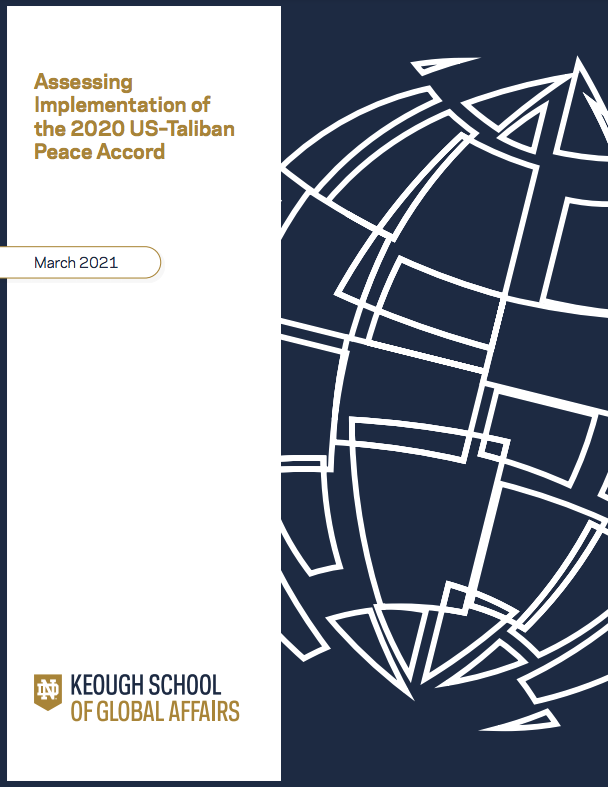Assessing Implementation of the 2020 US-Taliban Peace Accord
Author: Madhav Joshi
Publication info: Keough School of Global Affairs, March 2021
Full text: Read the full report at curate.nd.edu
Abstract
Assessing Implementation of the 2020 US-Taliban Peace Accord provides an overview of the current implementation status of the agreement negotiated between the Taliban and the United States signed on February 29, 2020.
Using the Peace Accords Matrix (PAM)—a methodology for monitoring and assessing implementation of comprehensive peace agreements developed by the University of Notre Dame’s Kroc Institute for International Peace Studies—experts measured the level of compliance with the Doha Agreement. At the one-year mark, overall implementation stands at 57.58%.
The report concludes by identifying four specific recommendations for sustaining the negotiation process and improving the potential to build a lasting and inclusive peace in Afghanistan:
- Negotiators should pursue a formal regional approach.
- A decline in the level of violence is key, but a formal ceasefire agreement is not necessary.
- Negotiators must have a framework agreement with an agreed-upon negotiating agenda.
- The peace process in Afghanistan requires patience.
Recommended citation
Joshi, Madhav. Assessing Implementation of the 2020 US-Taliban Peace Accord. Notre Dame, IN: Keough School of Global Affairs, 2021. https://doi.org/10.7274/r0-K8n7-2a40
Topics
Related
Webinar: Politics and Gender in Afghanistan
Experts share insights on what the international community can do to protect investments the US and its allies have made to institutionalize women’s rights in Afghanistan.
Peace Accords Matrix (PAM)
The PAM database serves as a valuable tool for analysis to support the negotiation and implementation of peace accords, including the implementation of the Colombian peace accord.
Keough School in Washington, DC
The Keough School Washington Office is a convener of public policy conversations and serves as a venue for programming, teaching, and outreach in the DC area.
